Life
Sign up for our newsletter
We summarize the week's scientific breakthroughs every Thursday.
-
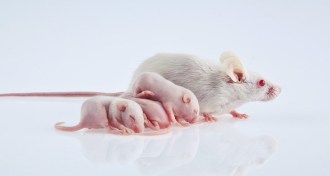 Neuroscience
NeuroscienceVaginal microbes in mice transfer stress to their pups
During birth, microbes from a stressed mouse mother can carry some aspects of stress to her offspring.
-
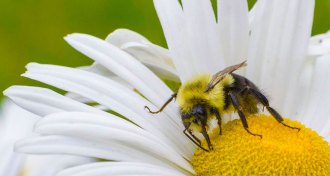 Animals
AnimalsWhy humans, and Big Macs, depend on bees
Thor Hanson, the author of Buzz, explains the vital role bees play in our world.
-
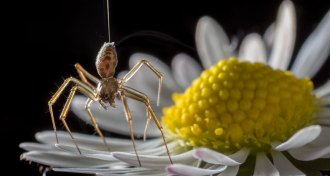 Animals
AnimalsSoaring spiders may get cues from electric charges in the air
Spiders can sense atmospheric electric fields, which might give them cues to take to the air.
-
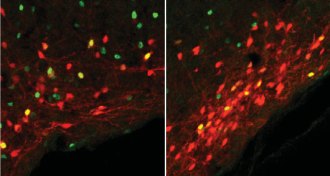 Neuroscience
NeuroscienceNerve cells that help control hunger have been ID’d in mice
A mysterious bump on the human brain may be able to dial appetite up or down.
-
 Genetics
GeneticsNorth America’s earliest dogs came from Siberia
North America’s first dogs have few descendants alive today, a study of ancient DNA suggests.
By Bruce Bower -
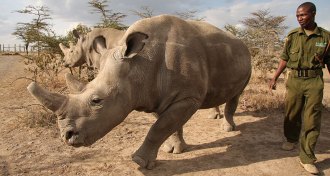 Animals
AnimalsResearchers create hybrid embryos of endangered white rhinos
Scientists have made the first rhino embryos, providing a small glimmer of hope for the nearly extinct northern white rhinoceros.
-
 Life
LifeThis ‘junk’ gene may be important in embryo development
Mice — and maybe humans — can’t get past the two-cell stage of development without a particular type of jumping gene.
-
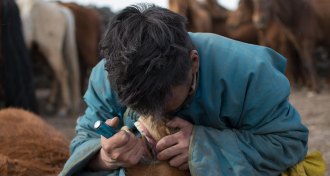 Archaeology
ArchaeologyMongolians practiced horse dentistry as early as 3,200 years ago
Horse dentistry got an early start among Bronze Age Mongolian herders.
By Bruce Bower -
 Genetics
GeneticsKoala genome may contain clues for helping the species survive
The complete genetic instruction book of a koala may explain why the cuddly-looking cuties are such picky eaters, among other secrets.
-
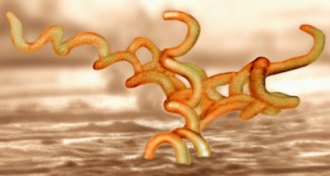 Health & Medicine
Health & MedicineFinally, there’s a way to keep syphilis growing in the lab
Scientists have figured out how to keep a sample of the bacteria Treponema pallidum alive and infectious for over eight months.
-
 Genetics
GeneticsThe study of human heredity got its start in insane asylums
‘Genetics in the Madhouse’ reveals how human heredity research began as a statistical science in 19th century insane asylums.
By Bruce Bower -
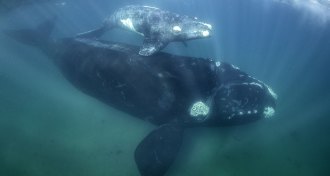 Animals
Animals‘Spying on Whales’ dives into the story of true leviathans
"Spying on Whales" retraces the evolution of cetaceans, explaining how they came to be some of Earth’s largest creatures.
By Sid Perkins